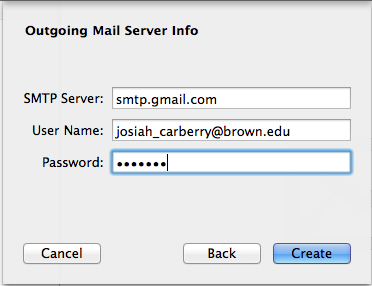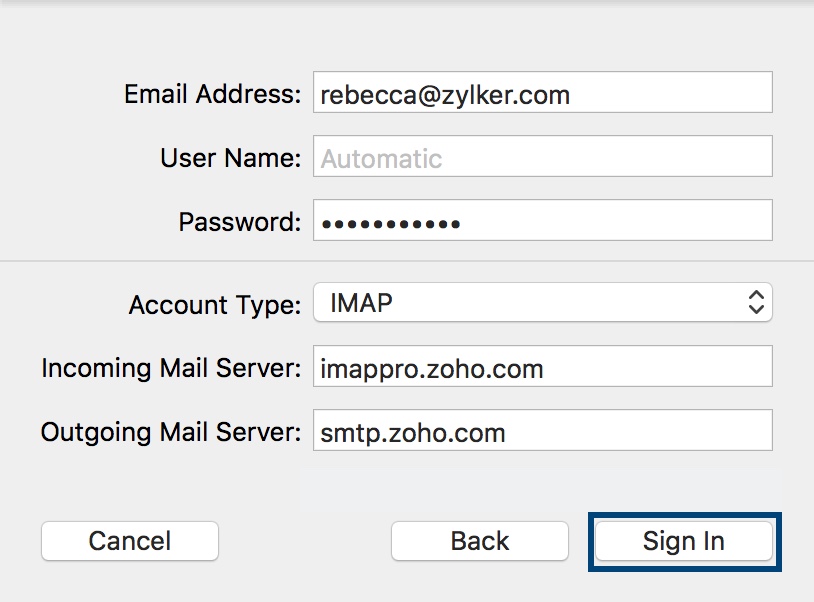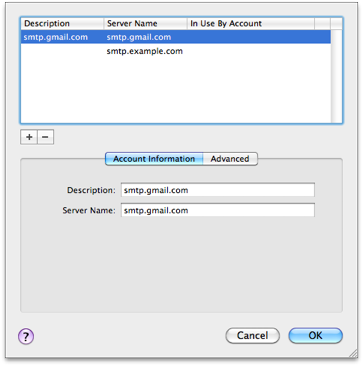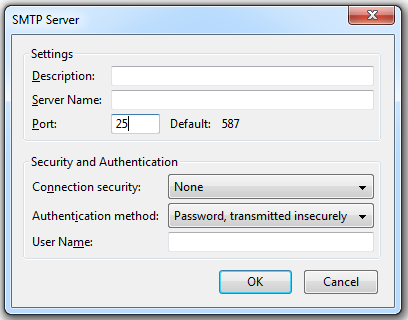

- OUTGOING MAIL SERVER FOR GMAIL MAC HOW TO
- OUTGOING MAIL SERVER FOR GMAIL MAC FOR MAC
- OUTGOING MAIL SERVER FOR GMAIL MAC PASSWORD
- OUTGOING MAIL SERVER FOR GMAIL MAC DOWNLOAD
- OUTGOING MAIL SERVER FOR GMAIL MAC MAC
In these cases, your incoming email will remain secure. Some email readers will allow you to ignore this warning. make requesting a signature as simple as sending an email. If you use this SSL option in conjunction with a domain name, your email reader may warn you that the domain names do not match. Signatures Mail Using Outlook on a Mac, choose Outlook > Preferences > Signatures For other. Please also note that our mail servers use an SSL certificate.
OUTGOING MAIL SERVER FOR GMAIL MAC HOW TO
The specifics of how to install a certificate will vary from program to program - please consult the help files of your program for details.
OUTGOING MAIL SERVER FOR GMAIL MAC DOWNLOAD
Our SSL certificate vendor has changed to a new "root" certificate, which is recognized by most, but not all, email programs. If your email program begins returning errors and indicates that the server certificate is not recognized, please download the root certificate below and install it in your email program. Please note that we replaced the secure certificate used to provide POPS, IMAPS, and SMTPS email services (sending and receiving email over SSL). These are the standard ports for these services, and you should not need to manually set them. For additional security, you would need to encrypt the email message itself. The port for POPS is 995, the port for the IMAPS is 993, and the ports for encrypted authenticated SMTPAUTH are 465 and 587.

Once it reaches the mail server, it will be in plain text. POPS/IMAPS only secures the connection between your email reader and the mail server.
OUTGOING MAIL SERVER FOR GMAIL MAC PASSWORD
Using encryption is an important way to prevent your password from being stolen. Pair Networks provides support for SSL/TLS and STARTTLS encryption for all IMAP, POP, and authenticated SMTP connections.

OUTGOING MAIL SERVER FOR GMAIL MAC MAC
Select the apps you want to be able to access this accountĬongratulations! You've set up your Pair email account in your Mac Mail. To find your outgoing servers, see our article: How to Find Your Email's Incoming and Outgoing Serversħ.

You can find the exact mail server for your account by following the instructions in our Finding Your Incoming and Outgoing Servers article. The two have very specific qualities, so we recommend you read our IMAP vs POP article if you're not sure which one to choose. On the next page, enter the additional information:Ĭhoose between IMAP and POP.This is the password for the email account. This is the email address for the account. This is a name to help you identify the account. Select Other Mail Account, then click Continue.Then select Add Account from the drop-down.
OUTGOING MAIL SERVER FOR GMAIL MAC FOR MAC
However, SSL is not available via these servers.Note that these instructions are for Mac Mail version 14.0 and may not work for other versions. SSL: 465 Non-SSL: 25 or mail servers, you can also choose to use or. While POP mail is still supported, IMAP is the preferred method of setting up webmail. Messages downloaded through POP are not able to be accessed from any other device or mail client. The mail is stored locally on the specific device and client that is used to access webmail. Post Office Protocol (POP) was initially designed as a way to access webmail by downloading your emails off of a mail server. The device may say this is an optional configuration, but if not complete, the ability to send emails will not be functional. SSL: 465 Non-SSL: 25 or For Apple's iOS, you will need to enter your email and password for the Outbound SMTP server. We recommend using SSL for better login security. IMAP keeps the data on the server and synchronizes any changes to all clients. We recommend setting up webmail with IMAP. Internet Message Access Protocol (IMAP) allows access to email on a shared server from multiple devices and locations.


 0 kommentar(er)
0 kommentar(er)
